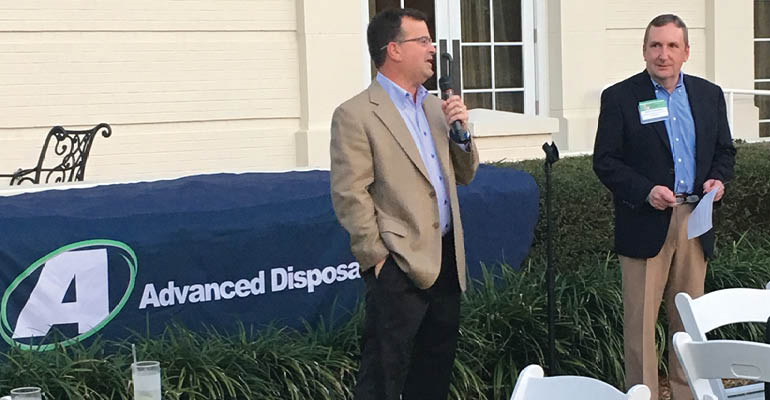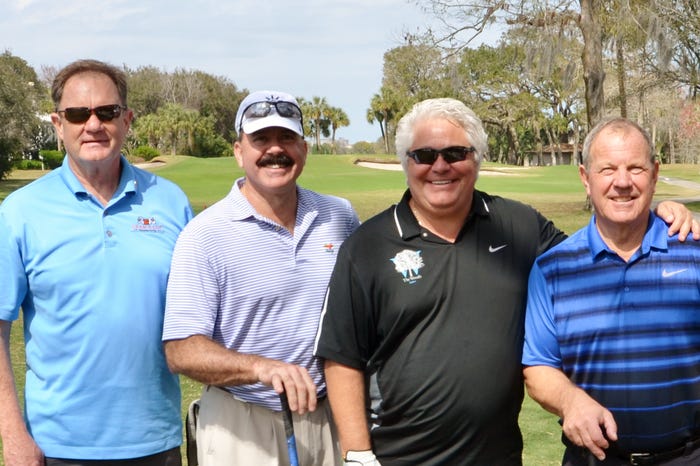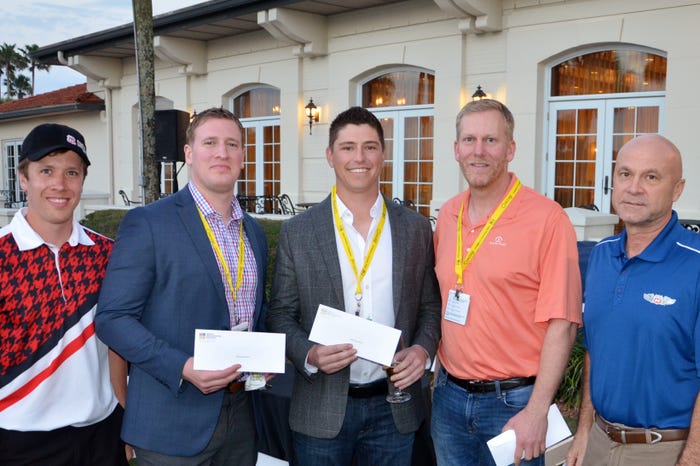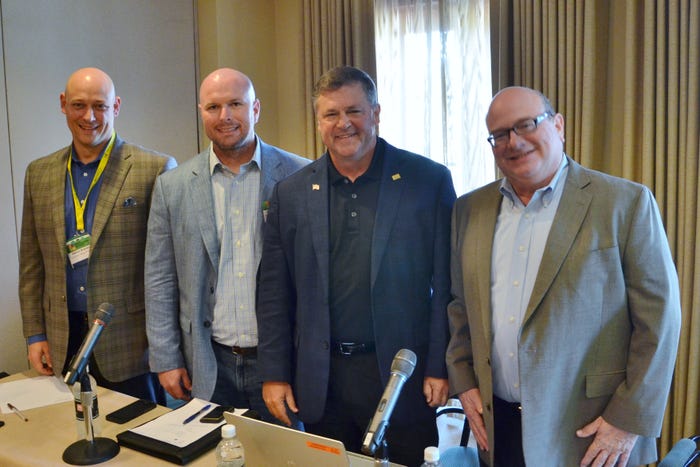The annual National Waste and Recycling Association Industry Conference took place this week at the Ponte Vedra Inn & Club in Ponte Verda Beach, Fla.

Industry members gathered to wrestle with topics including employee retention and company safety, outsourced and in-house fleet maintenance and sales at the annual National Waste and Recycling Association (NWRA) Industry Conferenceat the Ponte Vedra Inn & Club in Ponte Verda Beach, Fla. In addition to keynote sessions, attendees participated in committee meetings and education sessions and a golf tournament.

Here are some key takeaways from the 2017 NWRA industry conference:
1. Attendees kicked off the conference on Monday with competitive (and friendly) golf tournament, which was held on the ocean golf course. The winners of the tournament were announced Monday evening at the welcome reception, where attendees networked with each other.

2. During the a session entitled, "Employee Retention and Company Safety – Are They Mutually Exclusive?", Jeffrey Waite of Progressive Waste Solutions (now owned by Waste Connections), Jerry Sjogren of E.L. Harvey & Sons Inc. and Tony Hargis of NWRA discussed how companies can maintain a strong safety record by retaining the employees they have trained.
According to Waite, the tolerance for risk is higher in the waste and recycling industry compared to other industries and retention programs are essentially an extension of the health and safety program and culture of a company. And a solid health and safety culture is key to employee retention.
Waite also touched on the culture at Waste Connections and its "servant leadership" philosophy, which inverts the traditional management pyramid. [Instead of employees serving their bosses, bosses serve their employees to build a more productive business with a better bottom line.] This culture goes hand-in-hand with the company’s core values, which make up the foundation by which everything grows from.
To mitigate the risk of new hires, Waite recommends strong onboarding, training, offering professional development for trainers, coaching, focusing previous resources where needed, completing a trend analysis/risk profile and managing “off the team” when necessary.
Sjogren discussed how a lot of members of the industry are quick to point fingers at new hires when something goes wrong, but, in reality, it’s all workers who are involved in property damage or crashes. And attendance and employee behavior have a major impact on safety issues. “As an industry, we are slow to hire and quick to fire,” Sjogren commented.
Sjogren also explained how important it is to mentor the younger generation and to make employees feel valued. He suggests treating employees like shareholders to help invest them within the company.
Lastly, Hargis shared that good employees and good drivers only want to work for companies that have good employees and good drivers. He also mentioned that a lot of companies in the over the road trucking industry are experiencing a turnover rate of 100 percent, and that the number one challenge for fleets is drivers and the number five challenge is safety.
3. During the session on fleet management best practices, Nathan Brainard of Insurance Office of America, Harland Chadbourne of WastePro, Michael O’Connor of Premier Waste Services, Tommy McGhee of Rush Refuse Systems and Tony Hargis of NWRA discussed the pros and cons of outsourcing maintenance versus keeping it in-house.

WastePro's Chadbourne stated that one factor to consider is the company's bottom line. Often times outsourcing fleet maintenance can be more cost effective than keeping it in-house, but it ultimately comes down to various factors and the needs of each company.
At WastePro, fleet maintenance is handled in-house because the company has unique equipment from acquisitions. Many outsource providers don’t have the skills to service the company’s trucks' body/loader areas. The company can control all costs and maintain a quick turnaround time by having stock parts onsite for unique pieces of equipment. WastePro also has an in-house museum of more than 30 to 35 refuse pieces in Florida.
O’Connor of Premier Waste Services shared that fleet appearance is a reflection of the services customers are about to receive. He also explained the advantages and disadvantages of outsourcing maintenance versus keeping it in-house:
Advantages
Cost savings
Staff flexibility, expertise and work quality
Personnel issues
Tools, equipment and technology
Core business focus
Disadvantages
Loss of control
Staff turnover
Response time
Insurance Office of America's Brainard discussed the importance of protection and insurance. He stressed that when you outsource fleet maintenance, you are transferring the risk to another company, but if you keep fleet maintenance in-house, you are liable. Either way, companies should always make sure they are protected and insured.
4. At Solve This! – An Interactive Workshop, attendees broke out into small groups to come up with solutions to real-life scenarios and problems on topics like safety, recruitment and retention, leadership and managing resources.

5. The industry conference wrapped up on Wednesday with a NWRA member breakfast, where attendees shared insightful knowledge with each other about what they learned during the keynote sessions, education sessions and committee meetings.
About the Author(s)
You May Also Like




